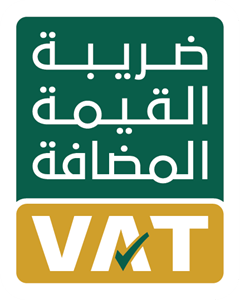- Realistic Practice: Role-playing allows participants to engage in realistic scenarios, helping them develop practical communication skills.
- Immediate Feedback: Participants can receive constructive feedback from peers or mentors, allowing for quick adjustments and improvements.
- Confidence Building: Practicing communication skills in a safe environment helps individuals feel more confident when interacting with clients or colleagues.
- Enhanced Empathy: Role-playing encourages participants to view situations from different perspectives, fostering empathy and understanding.
Role-Playing Exercises to Practice Effective Communication
.

Effective communication is essential in any professional setting, particularly in the beauty industry, where client interactions and teamwork play a crucial role. One effective way to enhance communication skills is through role-playing exercises. These activities provide a safe space to practice real-life scenarios, receive feedback, and build confidence. In this blog, we’ll explore various role-playing exercises to help beauty professionals strengthen their communication skills and improve client relationships.
The Benefits of Role-Playing Exercises
Role-Playing Exercises for Effective Communication
1. Client Consultation Simulation
Objective: Practice active listening and responding to client needs.
- Setup: Pair participants and assign one as the beauty professional and the other as the client. Provide a scenario, such as a makeup consultation, where the client has specific requests and concerns.
- Exercise:
- The client shares their preferences and concerns about a makeup look.
- The beauty professional practices active listening by paraphrasing and asking clarifying questions.
- After the role-play, switch roles and repeat the exercise.
- Feedback: Discuss what went well and areas for improvement, focusing on listening skills and how well the beauty professional addressed the client's needs.
2. Handling Difficult Situations
Objective: Develop skills for managing challenging client interactions.
- Setup: Create scenarios involving difficult situations, such as a client dissatisfied with a service or a request that cannot be fulfilled.
- Exercise:
- One participant plays the client expressing dissatisfaction, while the other plays the beauty professional who must respond calmly and professionally.
- Focus on using positive language, empathy, and problem-solving techniques to address the client’s concerns.
- Feedback: Discuss the responses, emphasizing the importance of maintaining composure and finding solutions to conflicts.
3. Team Collaboration Exercise
Objective: Improve communication and teamwork skills.
- Setup: Divide participants into small groups, assigning them a task that requires collaboration, such as planning a promotional event for a salon.
- Exercise:
- Each group discusses their ideas, ensuring everyone has a chance to contribute.
- Encourage the use of active listening and respectful disagreement when opinions differ.
- Feedback: After the exercise, groups share their ideas and reflect on how well they communicated as a team, focusing on collaboration and respect for differing viewpoints.
4. Elevator Pitch Practice
Objective: Refine concise communication and persuasive speaking skills.
- Setup: Each participant prepares a brief elevator pitch about their services or expertise in the beauty industry.
- Exercise:
- Participants take turns delivering their pitches to each other in pairs, simulating a chance encounter in an elevator.
- Encourage them to focus on clarity, enthusiasm, and engaging the listener.
- Feedback: After each pitch, partners provide feedback on clarity, engagement, and effectiveness, helping participants refine their delivery.
5. Role-Reversal Scenarios
Objective: Foster empathy by experiencing each other’s roles.
- Setup: Pair participants and assign roles, such as beauty professional and client. Provide a scenario where they must switch roles and act out the situation from the other’s perspective.
- Exercise:
- Each participant acts out the scenario while in the opposite role, focusing on understanding the other person’s point of view.
- Feedback: Discuss insights gained from the experience, emphasizing the importance of empathy in communication.
Conclusion
Role-playing exercises are an effective way for beauty professionals to enhance their communication skills. By engaging in realistic scenarios, participants can practice active listening, problem-solving, and teamwork, all of which are essential for building strong client relationships. These exercises not only build confidence but also foster a deeper understanding of the diverse perspectives within client interactions. Incorporating role-playing into training programs can lead to improved communication and ultimately better service delivery in the beauty industry.





